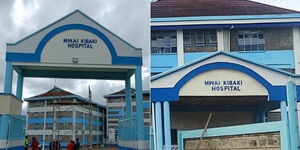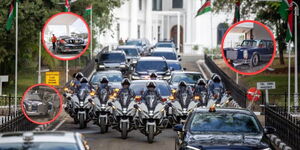Fuel prices announced by the Energy Petroleum and Regulatory Authority differed from one town to another.
According to the latest review, which is set to run from Wednesday, February 15 to March Tuesday 14, a litre of Super Petrol would retail at Ksh174.98 in Mombasa while Ksh177.30 in Nairobi. The difference is over Ksh2.
In that same period, Diesel would retail at Ksh159.76 in Mombasa and Ksh162 in Nairobi; a difference of Ksh2.24.
The difference was not only in Nairobi and Mombasa but also in other towns around the country. For instance, in Kilifi, EPRA announced that a litre of Super Petrol would retail at Ksh175.69, while in Nanyuki at Ksh179.23.
According to the breakdown, Towns and counties near the Port of Mombasa, such as Kilifi county, Likoni mainland, Kwale, Malindi, Lungalunga and Voi, had affordable prices.
However, in far-flung towns such as North Horr, Maikona, Kalacha, Loyangalani and Turbi, EPRA set the price for a litre of Super Petrol above Ksh180.
Speaking to Kenyans.co.ke, Economist XN Iraki attributed the differences in fuel prices to transportation costs.
The University of Nairobi lecturer explained that counties and towns closer to the Port of Mombasa enjoy cheaper fuel than others due to the associated transportation costs.
"Transportation costs is the leading factor as to why prices differ. Transporting fuel after landing at the Port of Mombasa is quite expensive. So to accommodate the oil transporters, EPRA reviews the prices slightly higher to towns far away from the port," Iraki stated.
The experienced economist also attributed the difference to the prevailing economic factors, which he argued EPRA implements to ensure that oil marketers are compensated.
He further opined that fuel retailers in many regional areas tend to have lower stock turnover than areas close to the city, necessitating higher price reviews.
However, the University of Nairobi lecturer indicated that the government had recommended a framework that would make it possible to have uniform pump prices across the country.
"EPRA did not immediately adopt the recommendations, but it was poised to unify fuel prices across the country," Iraki stated.
EPRA unveiled the plans in 2018 and contracted a private firm to establish the framework. Following a feasibility study, the company made several recommendations to EPRA.
The study focussed on Ghana, where fuel prices throughout that Western African country were uniform in all regions.
"The report identified the feasibility of a petroleum pump price equalisation process but recommended a proper policy and regulatory framework to ensure the success of the process," EPRA announced after receiving the recommendations.
"EPRA will continue consulting with key stakeholders to check the viability of such a process," the energy regulator added.












